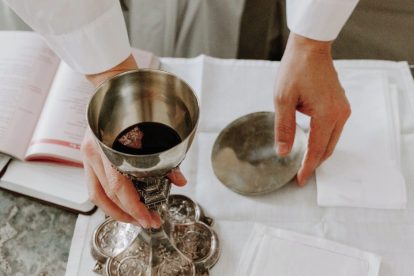Digital Edition
A table for all
The Eucharist should be political
Earlier this year, a lot of (sometimes misleading) controversy swirled around the question of abortion, Catholic politicians, and communion. This isn’t a new question. There was plenty of discussion (and controversy) back in 2004 when John Kerry (a Catholic) ran for president. The Latin American bishops addressed it (again controversially) in their 2007 Aparecida document.
For many Catholics, all these debates seem out of place—we sometimes hear that we should not “politicize the Eucharist.” And it’s true that the Eucharist (or any Catholic activity) should not become a weapon in partisan battles about government. At the same time, putting the particular controversy aside, we should consider a deeper question: What is the relationship between this most sacred ritual of our Catholic faith and our moral and political practices? Here, we should immediately realize that there needs to be some connection! The Sunday Eucharist, as the “source and summit of the Christian life,” according to the Catechism of the Catholic Church, must be related to the views we express and the choices we make the rest of the week. Otherwise, it’s just an empty ritual or a practice that only has to do with the life to come.


